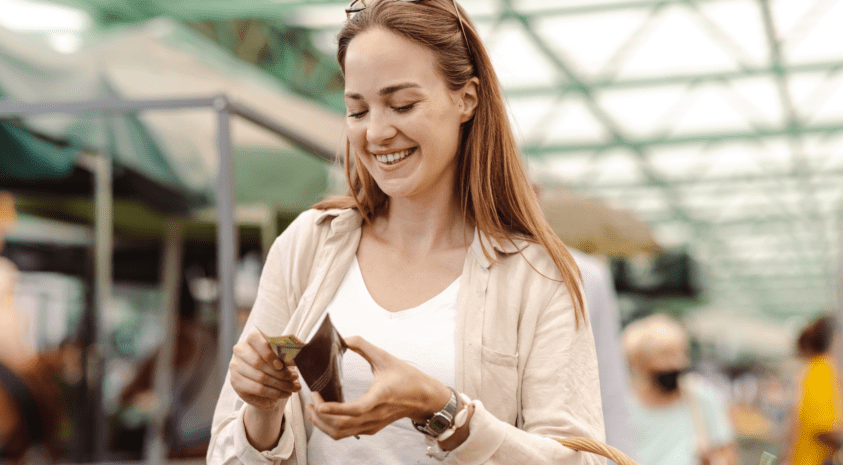Is your wallet so hefty it’s weighing down your handbag or causing discomfort when you sit? If yes, that means it’s probably time for you to perform a wallet audit!
With much of the information and resources you once carried in your wallet now accessible on your phone, the days of carrying an overstuffed wallet are long gone. Besides being bulky and uncomfortable, a packed wallet full of unnecessary items can provide criminals with more than just the cash it contains; it can give them the information they need to steal your identity or perform other acts of fraud.
Safeguard yourself against crooks by performing a wallet audit and taking these steps to mitigate your risk.
Scale back on cash.
These days, there aren’t many reasons to carry a large amount of cash. Instead, when you go out, only bring the amount of cash you’ll need, plus a little extra cushion just in case. Replace as needed.
Only carry your health insurance or Medicare card when needed.
You only need to carry these cards in your wallet if you’re heading to an appointment where you might need them. Even if you wind up in the emergency room without your insurance card, the hospital will still treat you; they’ll just get your insurance information later. In the wrong hands, your Medicare or health insurance information could be used for medical scams.
Remove blank checks.
Never carry blank checks in your wallet. If stolen, blank checks can make you a victim of check fraud.
Carry one credit card and one debit card.
Select the ones you use the most and leave the others at home. Multiple credit cards are not only a pain to cancel if stolen, but a boon to thieves who could quickly rack up online orders or send runners into multiple stores. Set up fraud alerts on your debit card and set a daily spending limit to reduce your risk.
Take out your house key.
If your wallet gets stolen, a thief will have your address (from your driver’s license) AND your house key.
Never carry your Social Security card.
Your Social Security card and other important documents like your birth certificate or passport card aren’t needed for daily use. Leave them at home so criminals can’t sell your information or use it to open lines of credit.
Only carry gift cards when you’re going to use them.
Besides taking up space, gift cards don’t require identification to be redeemed, making them an easy win for thieves.
Remove old receipts, rewards cards and business cards.
These pointlessly take up space!
What should be left in your wallet?
Once you’ve completed your wallet audit, here’s what should be left:
- Your driver’s license
- A credit card
- A debit card
- A modest amount of cash
Learn more about how to protect yourself from scams.
Have questions about financial security?
Safeguarding your wallet is one small, but important aspect of financial security. Ready to learn more? Contact our Bankers Life Securities financial professionals for the guidance you need to take control of your financial future.



